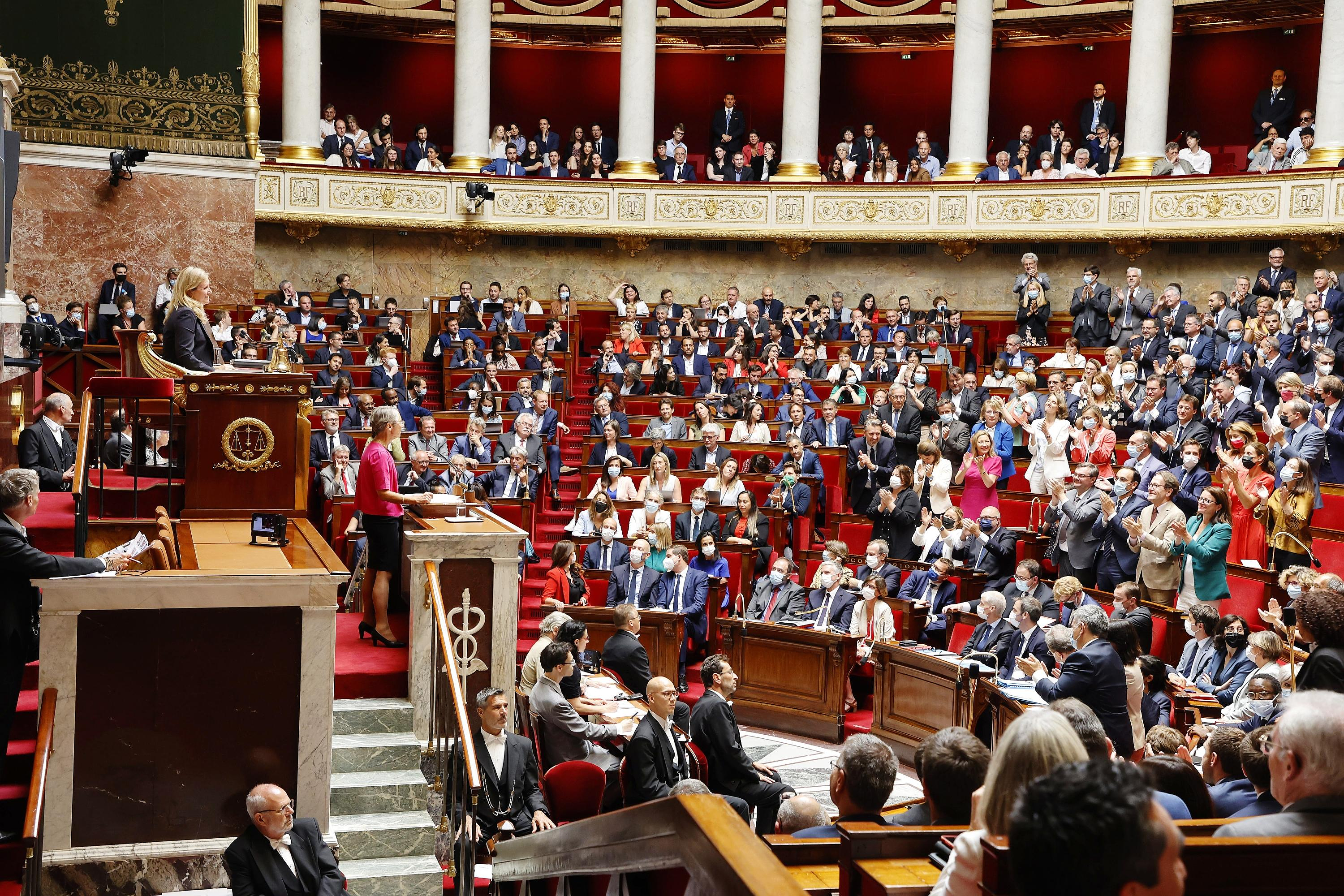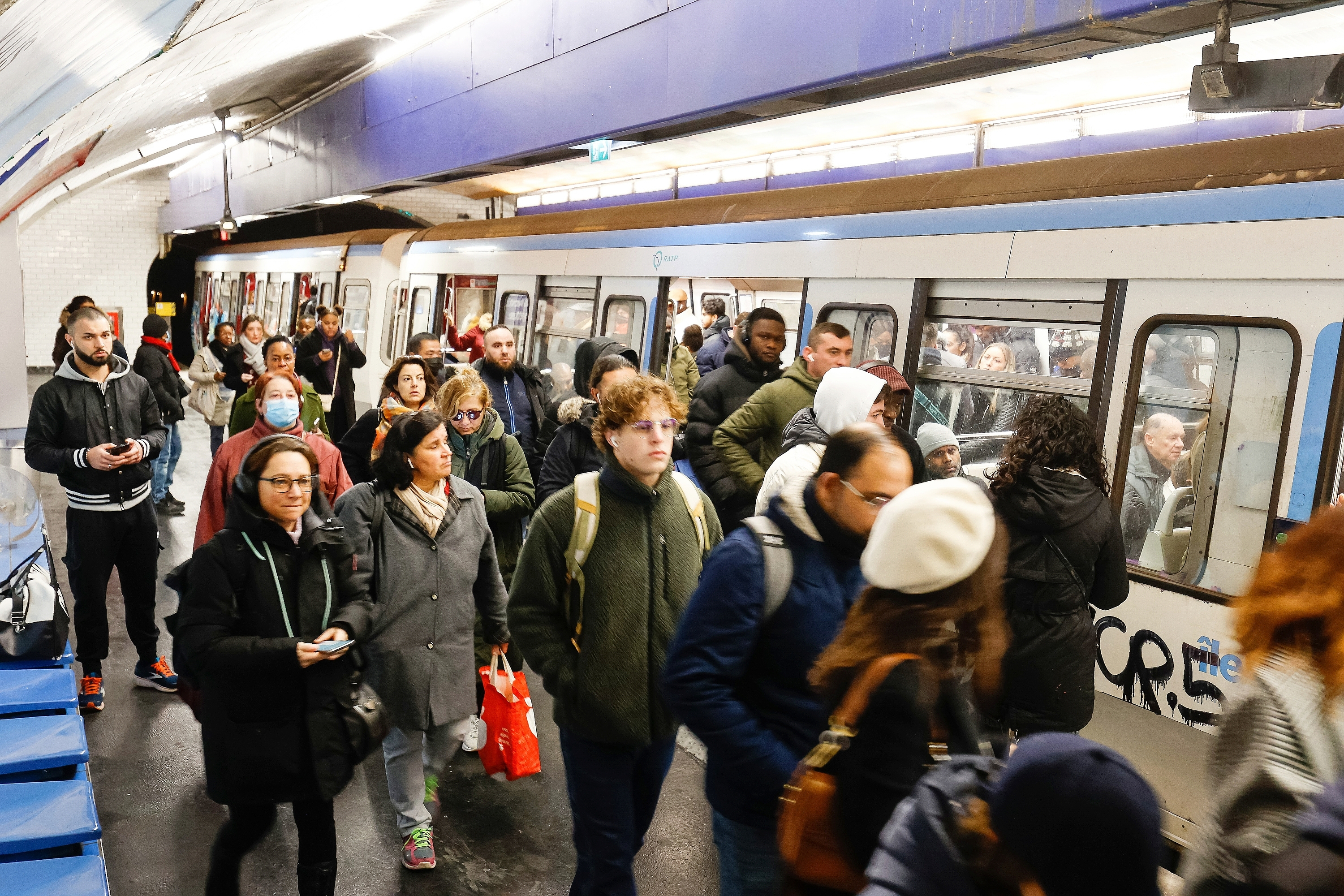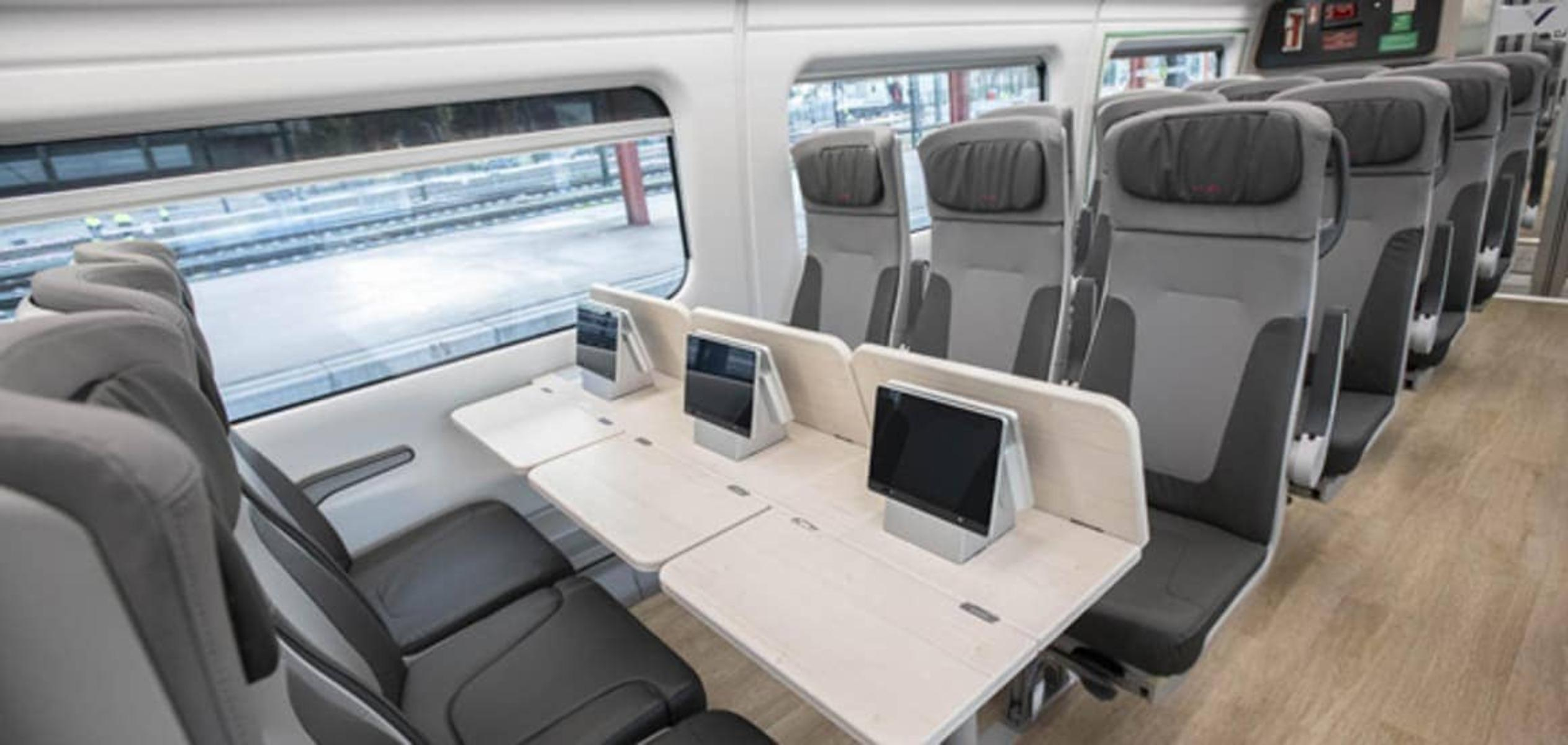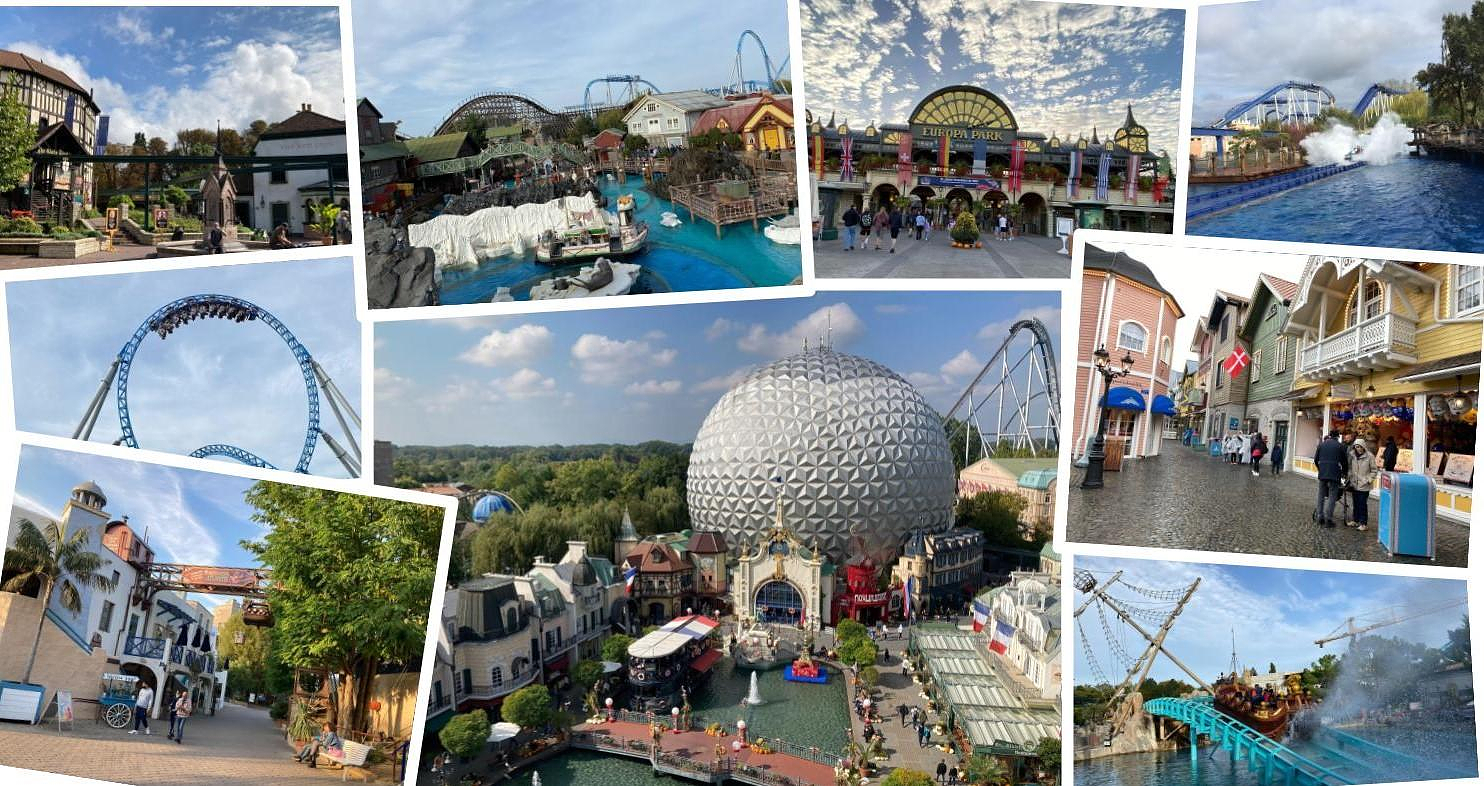Emmanuel Macron has put both feet into the European campaign, six weeks before the election. Seven years after his first speech at the Sorbonne, the Head of State reiterated this Thursday his profession of faith for “a powerful Europe” from the great amphitheater. This, while the list of the presidential camp, led by Valérie Hayer (17.5%), remains more than ten points behind in the polls from that of the National Rally (31.5%).
A speech singled out by the oppositions who accuse the president of interfering in the campaign, which did not prevent him from unfolding his vision for the continent for almost two hours. Surrounded by his government, present in the public, Emmanuel Macron had also sent an invitation card to all the French MEPs, held in Strasbourg (Bas-Rhin) for the last plenary session of Parliament.
Behind a blue background studded with European stars, Emmanuel Macron drew up the broad outlines of his assessment, seven years after his first roadmap. “We have not succeeded in everything,” he first conceded, pointing to “limited progress” to make our “Europe more democratic”.
Before immediately listing the “historic steps” accomplished by the continent through “an unprecedented conjunction of crises”. Starting with the Covid-19 pandemic, during which Europe made, according to him, “the choice of financial unity”. “Nothing was said on this subject. When we proposed a common debt capacity, we were told: “great French idea, it will never happen”,” he said from the top of his desk, citing the benefits of “recovery projects” so far. 'to "supporting our businesses".
Also read: What remains of Macron's 2017 speech on the European Union?
The Head of State then praised the “choice of strategic unity”, particularly on “health” which had until then been the prerogative of States. “If France was able to vaccinate from the start of 2021, it is because there was this European reflex,” he assured.
Third “decisive step”, that of “technological and industrial sovereignty”. In front of an audience of parliamentarians, Emmanuel Macron listed the initiatives in this area launched since his first five-year term: “In 2018, we launched an initiative with Germany to support our battery sector, subsequently extended to hydrogen, electronics or even health, (...), the tank of the future, the air combat system of the future. And with our Dutch friends, on submarines too, structuring initiatives.”
Emmanuel Macron then returned to “the autonomy strategy” of the continent, developed “from the moment of the pandemic but especially in the first weeks after the Russian aggression against Ukraine”. “Assuming this choice as a European” and affirming Europe's exit from “this technological and industrial naivety”, the tenant of the Élysée hammered home the need “to put an end to our strategic dependencies in key sectors”, such as semiconductors and other “critical raw materials”.
While the war has continued for more than two years at the gates of Europe, Emmanuel Macron pointed to “a tipping point” for the continent. “Europe is mortal (...) We are not armed to face the risk that is ours,” he admitted. Faced with Russia's territorial push, Europe is, according to him, "in a situation of encirclement." “It is today that the question of peace and war on our continent and our ability to ensure our security or not is being played out,” warned the president.
This, while France has “doubled its defense budget”, he underlined. Not enough, however, in the face of “the increase in military capabilities” throughout the world, fueled in particular by “uninhibited regional powers like Russia and Iran”. “The very fact that the war has returned and that it is led by a power with a nuclear weapon has changed the rules of the game,” said the head of state, in reference to the conflict led by the Kremlin in Ukraine.
Emmanuel Macron also called not to rely only on the American ally, particularly in the protection of the continent. “The United States has two priorities: the United States first, and the China question second. The European question is not a geopolitical priority,” he said. With one objective reiterated throughout the speech: “To show that Europe is never America’s vassal.”
“Main danger” for Europe, the war in Ukraine was discussed at length. Recalling the need for “Russia not to win” this conflict, the president returned to his hypothesis of sending Western troops to Ukraine. “I fully accept the choice in this matter, on February 16, of having introduced strategic ambiguity,” he explained. “We are facing an uninhibited power, which attacked a European country, but which is no longer in a special operation and which no longer wants to tell us what the limit is. Why should we say every morning what all our strategic limits are?” he asked, focusing his charges on Moscow.
“Do we have limits? No,” he warned, while the oppositions had denounced “go to war” remarks. And to affirm: “We must be credible, deter, be present and continue the effort”, before announcing a meeting with “all our partners” in the coming months to reflect on “a strategic concept”, in which “ France will play its full role.”
While kyiv's accession to the European Union divides the 27, Emmanuel Macron assured that the country belongs to "our European family" and has a "vocation to join" the EU, like Moldova.
Also read Macron on the war in Ukraine: “We cannot afford to set limits in the face of an enemy who sets no limits”
“How do we want to build our autonomy if we do not also undertake to develop a European defense industry?” asked the Head of State. To make up for “decades of underinvestment” in defense industries, Emmanuel Macron reiterated his call to build “a new paradigm” between Europeans. In particular by launching “a new European loan” to strengthen the military arsenal.
Way to free ourselves a little more from “our heavy spending on non-European industry” in terms of armaments. “We need a European preference in the purchase of equipment,” he insisted, while the Old Continent imports “American” or “Korean” equipment. Including in “space”, an area where European countries remain lagging behind
It’s also an opportunity for France to do well. “We can push our standards,” he said. And to concede: “Sometimes we discovered among Europeans that our guns were not of the same caliber (...) and that this reduced our ability to act together on the same operations.”
While immigration is one of the major themes of the campaign, Emmanuel Macron called for “a real European policy and real coordination” in this area. “Our borders are a common good,” he said, two weeks after the adoption of the asylum and migration pact in the European Parliament. A contested text that he describes as “an essential achievement” of “recent years”.
According to the Head of State, border protection “will require greater coordination with countries of origin and transit. Clearer conditionalities. And a relentless fight against the economic model of smugglers and human traffickers.” Emmanuel Macron at the same time called for action “with more firmness” in terms of “return and readmission” towards those who are not eligible for asylum.
The president nevertheless dismissed the model “which would consist of finding third countries on the African continent” to accommodate asylum seekers, as the United Kingdom has just approved with Rwanda.
Also read 541%: illegal immigration to Europe via the West African route is exploding
Faced with the appetite of external powers, Emmanuel Macron called for an economic boost at the risk of Europe experiencing a “stall”. Even if it means reviewing the “growth model” of the continent which is no longer “sustainable” to avoid “impoverishment”. “We cannot sustainably have the most demanding environmental and social standards, invest less than our competitors, and think that we will continue to create jobs. It no longer holds,” warned the Head of State, while an agricultural crisis shook all the countries of the Union a few months ago.
Way of pointing the finger at countries which do not submit to “the rules of the economic game”. “The two leading international powers have decided to no longer respect trade rules,” he added, referring to the United States and its Chinese rival. Before summarizing: “We regulate too much, we invest too little, we are too open and we do not defend our interests enough.”
This is why Europe must consider a “revision” of its trade policy. “We are going to invent a continent which constrains its producers on its soil and which through its trade policy lifts the constraints for others,” he insisted. However, Emmanuel Macron assures that we must not “fall into the refusal of any trade agreement”, like the treaty with Canada (Ceta). “The closure would be decreasing for European manufacturers,” he pointed out, praising “fair competition”.
“A bad word still seven years ago”, the acceleration of industrial policy is another major axis of the “prosperity pact” rolled out by Emmanuel Macron. “I believe very deeply that industrial policy is a key milestone of our prosperity in relation to the outside world but also of good European territorial planning,” said the Head of State.
To do this, we need “production objectives on European soil”, “training actions”, “common investments” and “consolidating what we have already done”. “Let us decide now to make Europe a world leader by 2030 in five of the most emerging and strategic sectors,” the president said. The targeted areas: artificial intelligence, quantum computing, space, biotechnologies and new energies.
Faced with the threats weighing on the “values” of the European Union, Emmanuel Macron wants to defend the model of society which “distinguishes us from others”. After the inclusion of abortion in the French Constitution, the Head of State now wants abortion to appear in the Charter of Fundamental Rights of the European Union.
The president also intends to “recivilize the digital space”. The latter notably pleaded for a “Europe of digital majority at 15 years”. “Before the age of 15, there must be parental control over access to this digital space,” he said. “Does anyone send their child to the jungle? At 5 years old, 10 years old, 12 years old. No one I think is sensible,” he explained, to “take back control of the lives of our adolescents.”

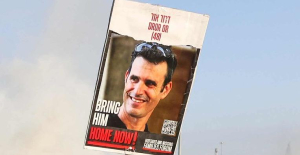 Who was Dror Or, the Israeli father who died as a hostage in the hands of Hamas?
Who was Dror Or, the Israeli father who died as a hostage in the hands of Hamas?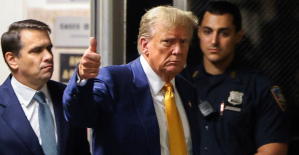 “Pay in cash”: at his trial, Donald Trump faced with an embarrassing recording
“Pay in cash”: at his trial, Donald Trump faced with an embarrassing recording Italy: a grandmother accidentally serves a bottle filled with wine to a baby, he has an alcoholic coma
Italy: a grandmother accidentally serves a bottle filled with wine to a baby, he has an alcoholic coma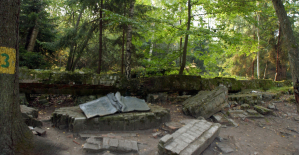 The mysterious skeletons of Hermann Göring's villa
The mysterious skeletons of Hermann Göring's villa Children born thanks to PMA do not have more cancers than others
Children born thanks to PMA do not have more cancers than others Breast cancer: less than one in two French women follow screening recommendations
Breast cancer: less than one in two French women follow screening recommendations “Dazzling” symptoms, 5,000 deaths per year, non-existent vaccine... What is Lassa fever, a case of which has been identified in Île-de-France?
“Dazzling” symptoms, 5,000 deaths per year, non-existent vaccine... What is Lassa fever, a case of which has been identified in Île-de-France? Sánchez cancels his agenda and considers resigning: "I need to stop and reflect"
Sánchez cancels his agenda and considers resigning: "I need to stop and reflect"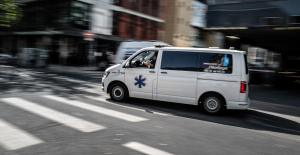 Health carpooling, this source of savings which arouses the ire of patients and taxis
Health carpooling, this source of savings which arouses the ire of patients and taxis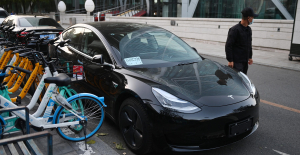 Tesla Model 3, MG4 and Dacia Spring.... With the end of the ecological bonus, these electric cars produced in China are seeing their sales fall
Tesla Model 3, MG4 and Dacia Spring.... With the end of the ecological bonus, these electric cars produced in China are seeing their sales fall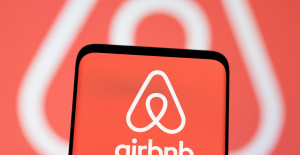 For the 2024 Olympics, Airbnb commits to fighting prostitution in its accommodation
For the 2024 Olympics, Airbnb commits to fighting prostitution in its accommodation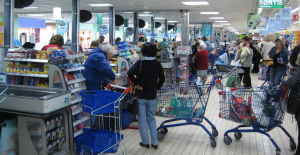 “Shrinkflation”: supermarkets obliged to alert their customers from July 1
“Shrinkflation”: supermarkets obliged to alert their customers from July 1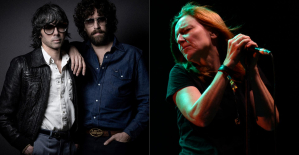 The electro of Justice and the echoes of Portishead
The electro of Justice and the echoes of Portishead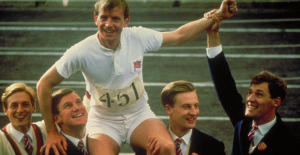 1924 Olympic Games: according to his daughter, the hero of Chariots of Fire was “not a bigot”
1924 Olympic Games: according to his daughter, the hero of Chariots of Fire was “not a bigot”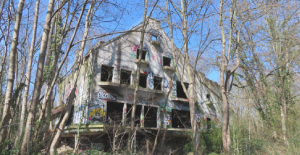 The “German Brothel” in Yvelines: an uncertain future for the ruined residence
The “German Brothel” in Yvelines: an uncertain future for the ruined residence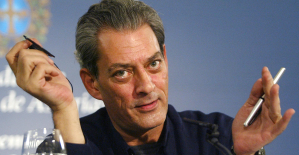 The eye of the INA: when Paul Auster visited Bernard Pivot
The eye of the INA: when Paul Auster visited Bernard Pivot Omoda 7, another Chinese car that could be manufactured in Spain
Omoda 7, another Chinese car that could be manufactured in Spain BYD chooses CA Auto Bank as financial partner in Spain
BYD chooses CA Auto Bank as financial partner in Spain Tesla and Baidu sign key agreement to boost development of autonomous driving
Tesla and Baidu sign key agreement to boost development of autonomous driving Skoda Kodiaq 2024: a 'beast' plug-in hybrid SUV
Skoda Kodiaq 2024: a 'beast' plug-in hybrid SUV The home mortgage firm rises 3.8% in February and the average interest moderates to 3.33%
The home mortgage firm rises 3.8% in February and the average interest moderates to 3.33% This is how housing prices have changed in Spain in the last decade
This is how housing prices have changed in Spain in the last decade The home mortgage firm drops 10% in January and interest soars to 3.46%
The home mortgage firm drops 10% in January and interest soars to 3.46% The jewel of the Rocío de Nagüeles urbanization: a dream villa in Marbella
The jewel of the Rocío de Nagüeles urbanization: a dream villa in Marbella Facing Jordan Bardella, the popularity match turns to Gabriel Attal’s advantage
Facing Jordan Bardella, the popularity match turns to Gabriel Attal’s advantage Europeans: a senior official on the National Rally list
Europeans: a senior official on the National Rally list Blockade of Sciences Po: the right denounces a “drift”, the government charges the rebels
Blockade of Sciences Po: the right denounces a “drift”, the government charges the rebels Even on a mission for NATO, the Charles-de-Gaulle remains under French control, Lecornu responds to Mélenchon
Even on a mission for NATO, the Charles-de-Gaulle remains under French control, Lecornu responds to Mélenchon These French cities that will boycott the World Cup in Qatar
These French cities that will boycott the World Cup in Qatar Monaco - Clermont: Minamino cornerstone, Fofana essential, the Clermont defense overwhelmed... The tops and the flops
Monaco - Clermont: Minamino cornerstone, Fofana essential, the Clermont defense overwhelmed... The tops and the flops Gymnastics: two gold medals for the Italian Manila Esposito during the European Championships
Gymnastics: two gold medals for the Italian Manila Esposito during the European Championships Champions Cup: in pain, Leinster beats Northampton and qualifies for the final
Champions Cup: in pain, Leinster beats Northampton and qualifies for the final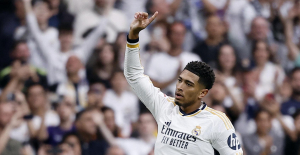 Liga: Real Madrid crowned champion of Spain after FC Barcelona's defeat in Girona
Liga: Real Madrid crowned champion of Spain after FC Barcelona's defeat in Girona




